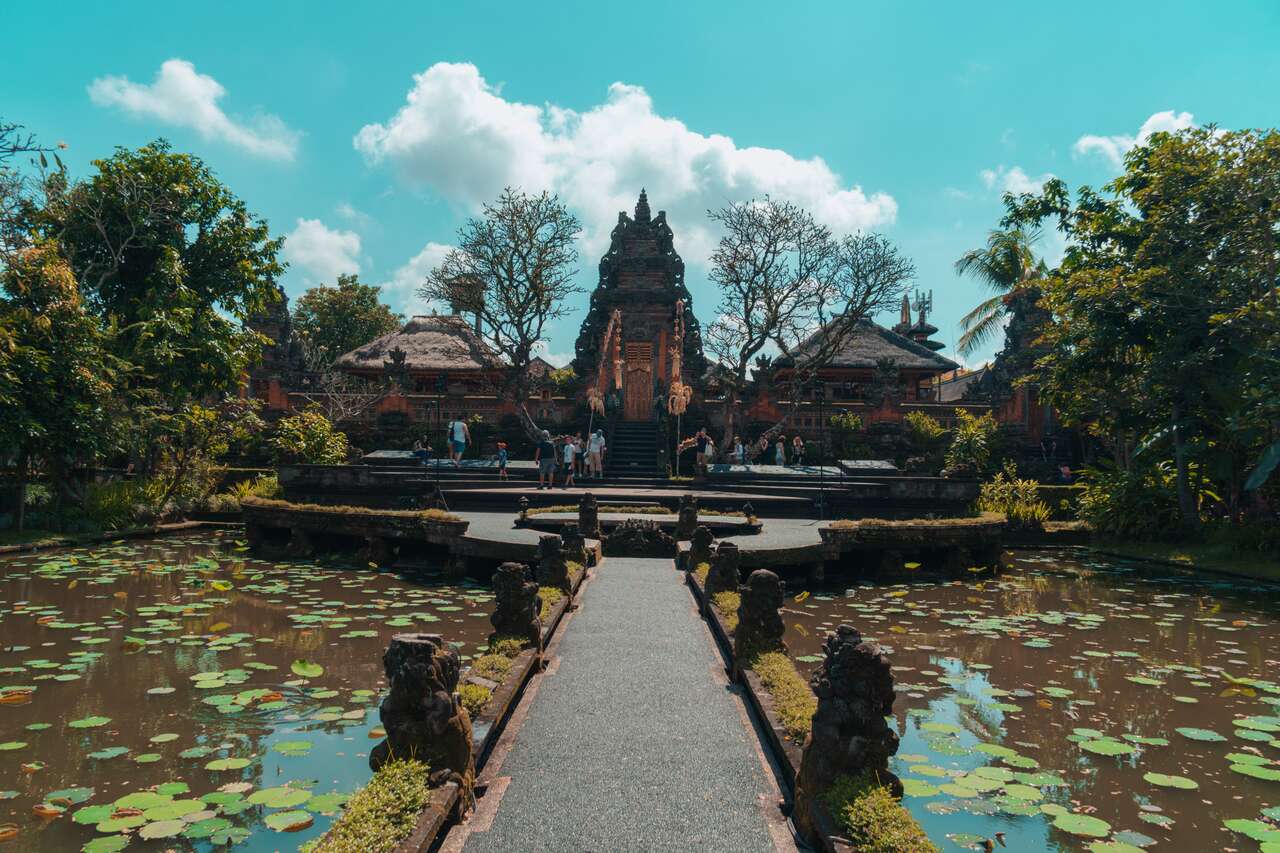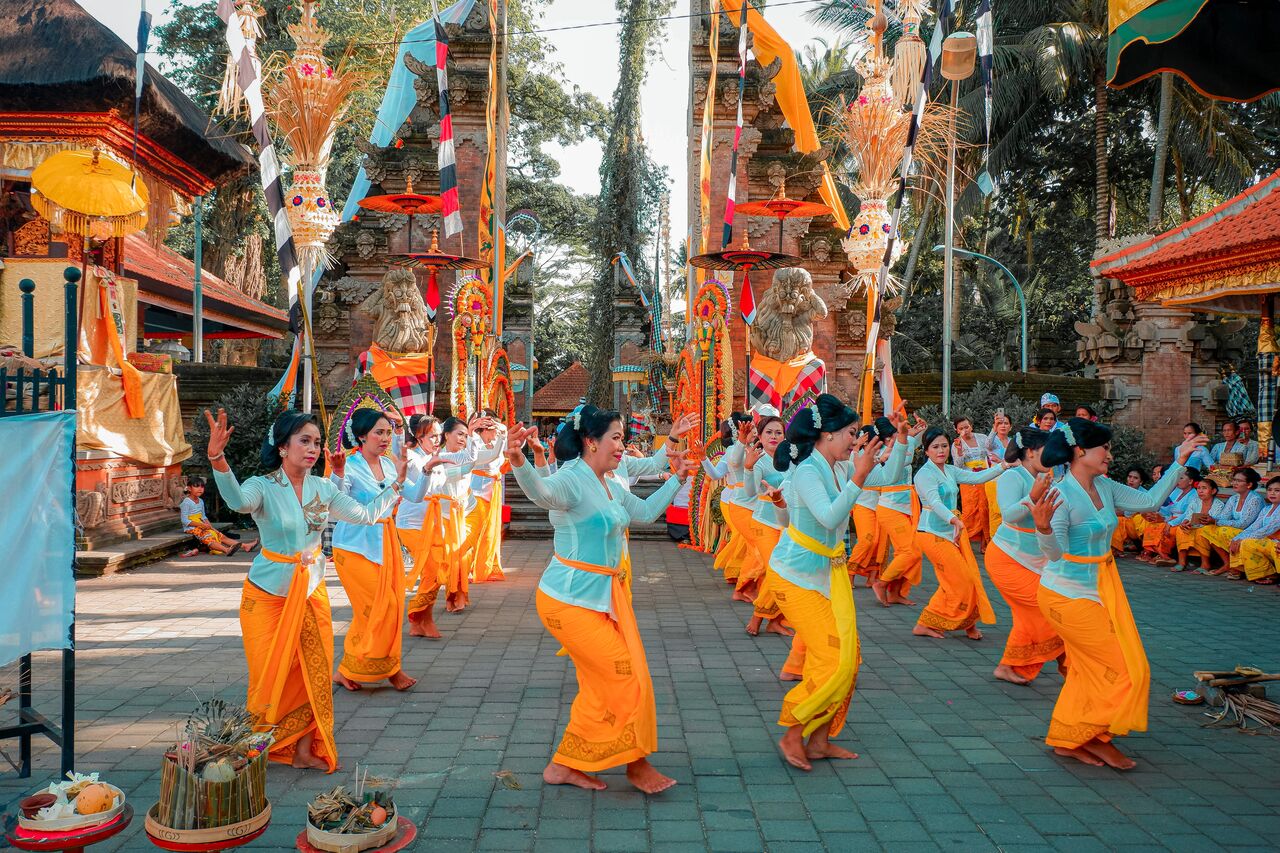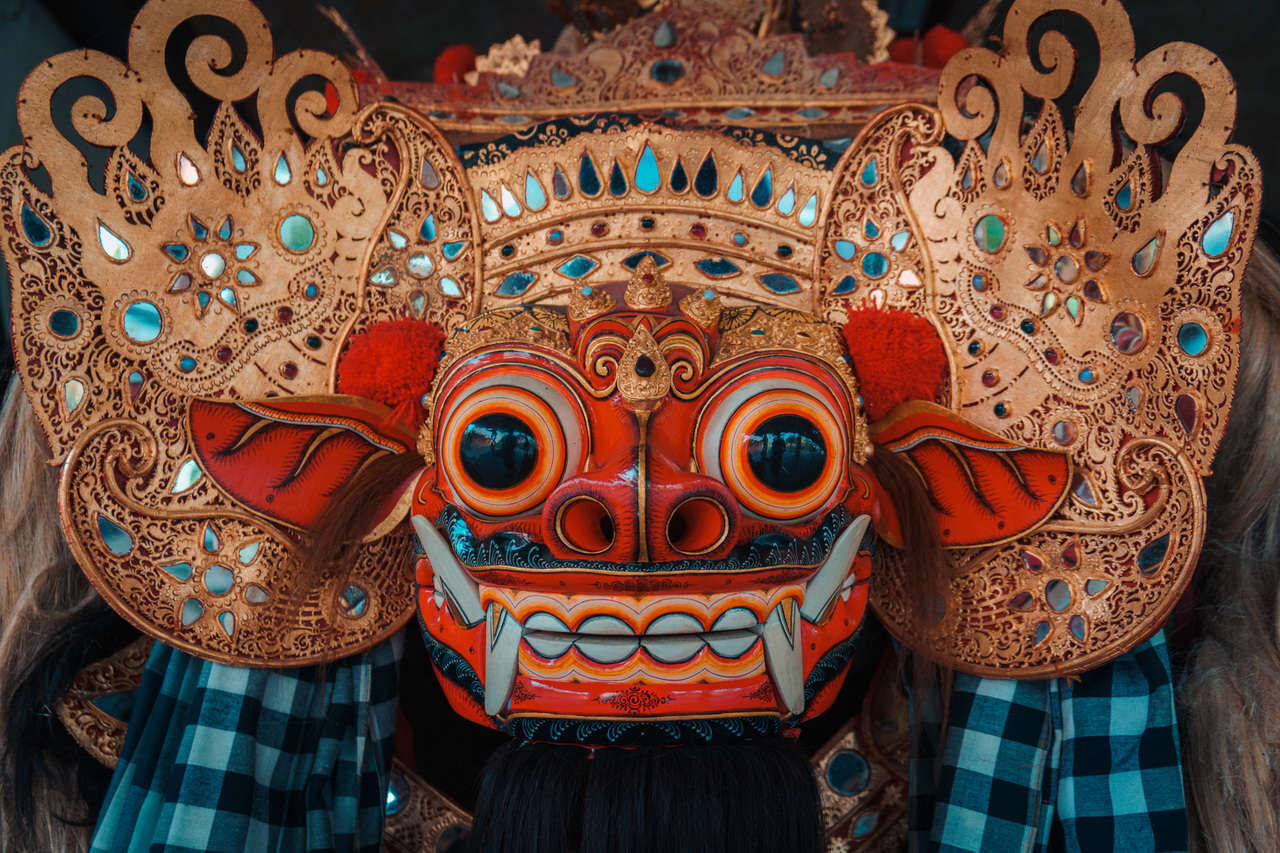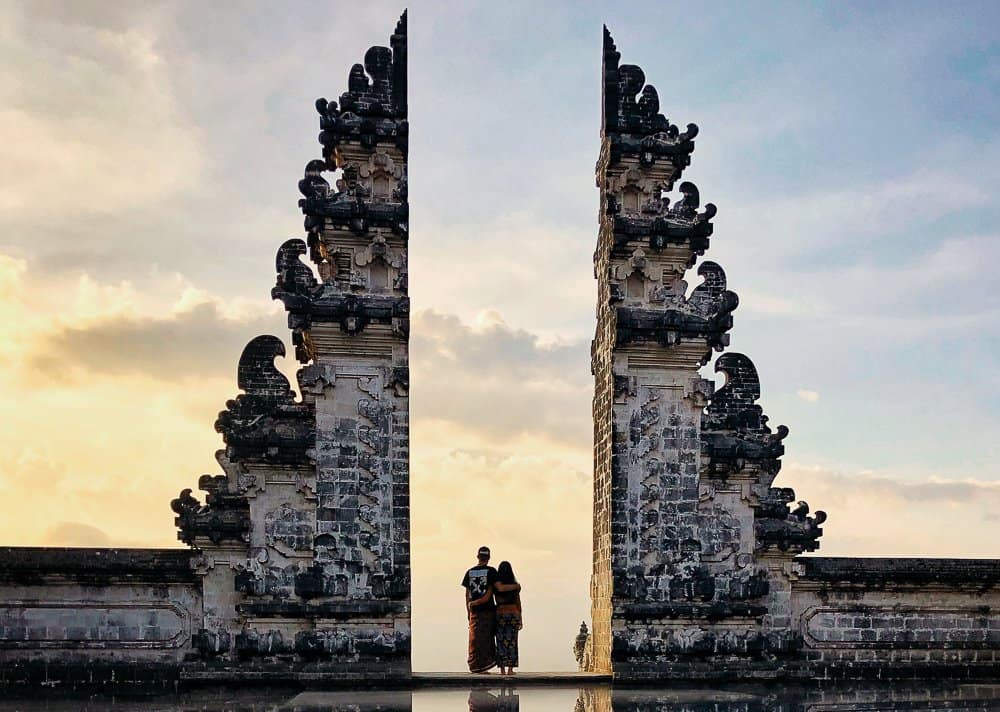Immerse yourself in the vibrant culture of Bali, Indonesia with our 2025 guide! Learn about Hindu traditions, local heritage, eco-friendly Bali Tours, and top providers for a sustainable adventure with Bali Travel. Plan your journey today!
Author Bio: Written by Tony Bùi, with over 20 years of experience in the travel industry, personally guiding and organizing tours for over 100,000 travellers across Southeast Asia. This guide draws from firsthand insights, guest feedback from Legend Travel Group surveys, and official sources like culturetrip.com, holiday-weather.com, weareglobaltravellers.com, localvietnam.com, and indonesia.travel. Information based on latest data as of August 27, 2025; verify before travel. Reflects Indonesia’s updated travel regulations.
Bali, a renowned island in Indonesia, located at approximately 8.65°S, 115.22°E and varying elevations from sea level to 3,000 meters, is famous for its beaches, temples, and vibrant cultural heritage, including sites like Uluwatu Temple and Ubud’s rice terraces weareglobaltravellers.com. A cultural hub for travelers, Bali attracts visitors for its temple ceremonies, traditional dances, and festivals like Nyepi culturetrip.com. Exploring Bali’s culture with guided Bali Toursimmerses you in its Hindu-Balinese traditions, intricate arts like Batik and Barong dance, and community life centered around temples and markets indonesia.travel. A fusion of spirituality, artistic heritage, and rural charm, Bali, facilitated by trusted Bali Travel providers, is ideal for culture enthusiasts, spiritual travelers, and eco-conscious visitors. Mastering Exploring Bali Culture etiquette ensures a respectful journey, enhancing this vibrant adventure.
Following Indonesia’s updated travel regulations in 2025, Bali is accessible via Ngurah Rai International Airport in Denpasar or by ferry from Java, with local transport like scooters, taxis, or bicycles within the island. This guide blends cultural insights, practical visiting tips, and sustainable Bali Travel ideas for a memorable experience.
Exploring Bali’s culture requires preparation for visas (most nationalities enjoy visa-free entry for 30 days; others require a visa, $35–$50). Bali’s key sites like Uluwatu Temple cost $2–$4 (30,000–60,000 IDR) for entry with donations ($0.20–$1 or 3,000–15,000 IDR) appreciated; guided tours cost $15–$80 (225,000–1,200,000 IDR), and local purchases range from $0.20–$10 (3,000–150,000 IDR). Key areas like Ubud, Kuta, and Seminyak are accessible by scooter, taxi, or bicycle. Verify schedules and visa requirements via indonesia.travel.
 Immerse in Bali’s vibrant cultural heritage (Source: Internet)
Immerse in Bali’s vibrant cultural heritage (Source: Internet)Hindu-Balinese Traditions: Bali’s culture is rooted in Balinese Hinduism, evident in daily offerings (canang sari), temple ceremonies, and rituals at sites like Uluwatu Temple, fostering spiritual harmony culturetrip.com.
Traditional Arts and Crafts: Bali is renowned for Barong and Kecak dances, Batik textiles, and wood carvings, showcased during festivals or at markets like Ubud Market weareglobaltravellers.com.
Festivals: Nyepi (March, lunar calendar) features a day of silence and temple rituals, while Galungan (varies, lunar calendar) includes vibrant ceremonies and penjor decorations, reflecting Balinese spirituality indonesia.travel.
Cuisine: Balinese dishes like babi guling (suckling pig), sate lilit (minced fish satay), and lawar (mixed vegetables) are staples, served at markets or warungs, highlighting the island’s culinary heritage holiday-weather.com.
Community Life: Bali’s villages thrive around temples and markets, with cycling tours and temple visits offering insights into daily life and Balinese cultural identity localvietnam.com.
Uluwatu Temple: A cliffside Hindu temple known for its Kecak dance performances and spiritual significance (entry: $2–$4 or 30,000–60,000 IDR, open 7:00 AM–7:00 PM) holiday-weather.com.
Ubud Monkey Forest: A sacred sanctuary with temples and traditional Balinese sculptures, reflecting Hindu reverence for nature (entry: $3–$5 or 45,000–75,000 IDR, open 8:30 AM–6:00 PM) weareglobaltravellers.com.
Ubud Market: A vibrant hub for local crafts, Batik, and Balinese food, showcasing community life (entry: free, open 6:00 AM–6:00 PM) localvietnam.com.
Tegalalang Rice Terraces: A UNESCO-recognized site reflecting Bali’s subak irrigation system and agricultural heritage (entry: $1–$2 or 15,000–30,000 IDR, open 7:00 AM–6:00 PM) culturetrip.com.
Cultural etiquette ensures a respectful experience at cultural sites during Bali Tours. Here’s your guide, based on current norms as of August 27, 2025:
Greetings: Offer a “selamat pagi” (good morning) with a slight nod; use both hands when paying for entrance fees or purchases to show respect, especially at temples or markets.
Dress: Wear modest clothing covering shoulders and knees for temple visits (e.g., Uluwatu Temple); a lightweight sarong ($2 or 30,000 IDR) aligns with local norms culturetrip.com.
Behaviour: Maintain a quiet demeanor during temple ceremonies; ask permission before photographing locals or rituals, especially at Uluwatu Temple; avoid loud behavior in communal spaces like Ubud’s rice terraces. Avoid pointing feet at sacred objects or touching offerings, as these are disrespectful in Balinese culture. A guest shared: “Respecting Balinese customs made our cultural experience profound.”
Customs: Temple entry costs $2–$4 (30,000–60,000 IDR) with donations ($0.20–$1 or 3,000–15,000 IDR) appreciated; remove shoes in temples; avoid touching sacred items; tipping is not mandatory but appreciated ($0.20–$1 or 3,000–15,000 IDR); avoid public criticism of the government (penalties apply). Avoid littering to preserve temples and markets culturetrip.com.
Tip: Say “terima kasih” (thank you) to locals or guides; use eco-friendly practices like carrying reusable water bottles ($2 or 30,000 IDR) to support sustainable Bali Travel; maintain respect in communal spaces. Tony Bùi notes: “In 20 years guiding, I’ve seen respectful travellers thrive in Bali’s vibrant culture.”
General Tips:
Language: Carry a phrase card ($1 or 15,000 IDR) for Indonesian basics like “terima kasih”; English is common in tourist areas like Ubud and Kuta but limited in rural areas culturetrip.com.
Respect: Follow temple and market rules (avoid touching sacred items or offerings); avoid disrupting festivals; support local artisans with fair purchases in markets.
Navigation: Key sites like Uluwatu Temple and Ubud Market are accessible by scooter, taxi, or bicycle from Denpasar or Kuta; use offline maps (Maps.me) with “Bali,” “Ubud,” or “Kuta” for navigation.
Eco-Tip: Use scooters ($5–$10 or 75,000–150,000 IDR/day) or bicycles ($2–$5 or 30,000–75,000 IDR/day) to reduce emissions, aligning with Indonesia’s green tourism goals.
Note: Etiquette reflects current norms; verify site hours via indonesia.travel.
 Photograph the festive spirit of Bali’s traditions (Source: Internet)
Photograph the festive spirit of Bali’s traditions (Source: Internet)Below is a curated list of tour options for exploring Bali’s culture, based on the latest data from culturetrip.com, holiday-weather.com, weareglobaltravellers.com, and localvietnam.com. Confirm schedules and prices before booking.
Details: Explore Uluwatu Temple, Ubud Monkey Forest, or Ubud Market independently; suitable for cultural enthusiasts; low to moderate difficulty.
Schedule: Daily; temples like Uluwatu open 7:00 AM–7:00 PM ($2–$4 or 30,000–60,000 IDR); Ubud Monkey Forest open 8:30 AM–6:00 PM ($3–$5 or 45,000–75,000 IDR); Ubud Market open 6:00 AM–6:00 PM (free); vibrant during Nyepi (March, lunar calendar).
Cost: Temple entry: $2–$4 (30,000–60,000 IDR); Ubud Monkey Forest: $3–$5 (45,000–75,000 IDR); donations: $0.20–$1 (3,000–15,000 IDR); transport (bicycle: $2–$5 or 30,000–75,000 IDR/day); local purchases: $0.20–$10 (3,000–150,000 IDR).
Location: Bali, Indonesia (Ubud, Kuta, Seminyak, etc.).
Eco-Friendly Note: Use bicycles or scooters to reduce emissions; avoid littering in temple grounds or markets.
Tip: Check schedules at indonesia.travel; visit early (6:00 AM) for temples or evening for markets; a guest noted: “Self-guided cultural visits were immersive and respectful.”
Details: 1-day group tour visiting Uluwatu Temple and Ubud Market; includes English-speaking guide, transport from Denpasar or Kuta, lunch, and entry fees; low difficulty.
Schedule: Daily; departs 7:00 AM from Denpasar or Kuta hotels; returns by 4:00 PM.
Cost: $25–$40/person (375,000–600,000 IDR, includes entries).
Pick-up/Drop-off: Hotels in Denpasar, Kuta, or Seminyak.
Eco-Friendly Note: Group transport with fuel-efficient vehicles minimizes impact; supports local artisans.
Tip: Book via legendtravelgroup.com; a guest noted: “Legend’s tour brought Bali’s culture to life.”
Details: 1-day guided tour visiting Uluwatu Temple and cycling through Tegalalang Rice Terraces; includes English-speaking guide, transport from Denpasar or Kuta, lunch, and entry fees; low to moderate difficulty.
Schedule: Daily; departs 6:30 AM from Denpasar or Kuta hotels; returns by 4:00 PM.
Cost: $30–$50/person (450,000–750,000 IDR, includes entries).
Pick-up/Drop-off: Hotels in Denpasar, Kuta, or Seminyak.
Eco-Friendly Note: Small groups reduce environmental impact; supports local communities.
Tip: Book via localvietnam.com; a guest noted: “The combo tour blended cultural and adventure experiences perfectly.”
Details: 2–3 day tour combining Uluwatu Temple, Ubud Monkey Forest, and Tegalalang Rice Terraces; includes English-speaking guide, transport, accommodation, meals, and entry fees; low to moderate difficulty.
Schedule: Daily; departs from Denpasar, Kuta, or Seminyak hotels; returns after 2–3 days.
Cost: $80–$200/person (1,200,000–3,000,000 IDR, includes entries).
Pick-up/Drop-off: Hotels or custom locations in Denpasar, Kuta, or Seminyak.
Eco-Friendly Note: Uses eco-lodges and fuel-efficient transport; supports local communities.
Tip: Book Bali Tours via legendtravelgroup.com or WhatsApp (+84 825862222); a guest noted: “The multi-day tour was a deep cultural immersion.”
Self-Guided Exploration: Flexible and authentic, ideal for independent travellers with cultural awareness.
Group Cultural Tours: Affordable and guided, perfect for immersive cultural insights.
Combo Cultural and Adventure Tours: Blend temple visits with adventure experiences for a comprehensive journey.
Multi-Day Cultural Tours: Offer in-depth exploration of Bali’s heritage, perfect for culture enthusiasts.
Eco-Friendly Note: Group and multi-day tours use fuel-efficient transport or bicycles, supporting Indonesia’s green tourism goals.
 Learn Bali’s traditions with expert guidance (Source: Internet)
Learn Bali’s traditions with expert guidance (Source: Internet)Key cultural exploration opportunities include:
Nyepi (Balinese New Year): Typically March (lunar calendar), vibrant with temple rituals and a day of silence, reflecting Hindu-Balinese spirituality; transitioning weather (24–33°C); check dates at indonesia.travel.
Galungan: Varies (lunar calendar), festive with temple ceremonies and penjor decorations; dry season (20–32°C); check dates at indonesia.travel.
Temple and Market Visits: Daily, ideal year-round for cultural experiences; best in dry season (April–October) for comfortable weather; August for serene temple visits weareglobaltravellers.com.
Dry season (April–October, 20–32°C) is ideal for temple ceremonies, market exploration, and festivals. Wet season (November–March, 24–33°C) suits indoor cultural experiences. Morning visits (6:00 AM–10:00 AM) avoid heat or crowds. Verify weather via accuweather.com.
Online Platforms: Book Bali Tours via localvietnam.com, legendtravelgroup.com, or indonesia.travel ($15–$80). Provide pick-up details (e.g., Denpasar or Kuta hotels); e-tickets are acceptable, but printing is recommended.
Tour Operators: Contact agencies like Legend Travel Group for bundled tours with temples, markets, or cycling.
Direct: Temple entry costs $2–$4 (30,000–60,000 IDR); Ubud Monkey Forest costs $3–$5 (45,000–75,000 IDR); donations ($0.20–$1 or 3,000–15,000 IDR) appreciated; book guided tours via local agencies in Denpasar (e.g., +62 361 759 888); confirm schedules via indonesia.travel.
Eco-Tip: Use digital tickets to reduce paper waste; opt for bicycles ($2–$5 or 30,000–75,000 IDR/day) or scooters ($5–$10 or 75,000–150,000 IDR/day) to minimize emissions.
Tip: Book early for festivals (March, varies); arrive by 6:00 AM for temples or evening for markets; carry small IDR notes for donations or purchases; confirm visa requirements ($35–$50 if needed).
 Capture the authentic charm of Bali’s cultural scene (Source: Internet)
Capture the authentic charm of Bali’s cultural scene (Source: Internet)Pack for a comfortable, sustainable visit:
Documents: Passport (valid 6+ months), Indonesia visa ($35–$50 if required), wallet ($2–$3 or 30,000–45,000 IDR), tour bookings.
Clothing: Modest clothing covering shoulders and knees; lightweight sarong ($2 or 30,000 IDR) for temple visits; quick-dry clothing and raincoat ($2 or 30,000 IDR) for wet season; lightweight clothing and light jacket ($5 or 75,000 IDR) for dry season; waterproof shoes ($5 or 75,000 IDR); hat ($2 or 30,000 IDR).
Essentials: Reusable water bottle ($2 or 30,000 IDR); snacks ($0.20–$1 or 3,000–15,000 IDR, e.g., pisang goreng); small backpack ($2 or 30,000 IDR); sunscreen ($1 or 15,000 IDR); insect repellent ($1 or 15,000 IDR).
Tech: Phone with translation apps (e.g., Google Translate); charger ($5–$10 or 75,000–150,000 IDR); local SIM ($2–$3 or 30,000–45,000 IDR); waterproof camera ($20 or 300,000 IDR) for photos (with permission).
Eco Items: Reusable tote ($1 or 15,000 IDR) for market purchases; phrase card ($1 or 15,000 IDR) with Indonesian basics.
Extras: Small IDR notes for donations or purchases; small first aid kit ($2 or 30,000 IDR); umbrella ($2 or 30,000 IDR) for wet season; money belt ($2 or 30,000 IDR) for valuables. Tip: Pack light (1 small bag, max 5 kg); reusable items support sustainability.
Cultural Site Visit Costs
Self-Guided Exploration: Temple entry: $2–$4 (30,000–60,000 IDR); Ubud Monkey Forest: $3–$5 (45,000–75,000 IDR); donations: $0.20–$1 (3,000–15,000 IDR); transport (bicycle: $2–$5 or 30,000–75,000 IDR/day).
Group Cultural Tours: $25–$40 (375,000–600,000 IDR, includes entries).
Combo Cultural and Adventure Tours: $30–$50 (450,000–750,000 IDR, includes entries).
Multi-Day Cultural Tours: $80–$200 (1,200,000–3,000,000 IDR, includes entries). Transport Costs (for Self-Guided Visits)
Bicycle: $2–$5 (30,000–75,000 IDR/day).
Scooter: $5–$10 (75,000–150,000 IDR/day).
Taxi from Denpasar or Kuta: $3–$5 (45,000–75,000 IDR). Other Costs
Donations: $0.20–$1 (3,000–15,000 IDR).
Local Snacks (e.g., babi guling, sate lilit): $0.20–$1 (3,000–15,000 IDR).
Souvenirs (e.g., Batik, wood carvings): $0.20–$10 (3,000–150,000 IDR). Total Daily Cost (Per Person)
Budget: $10–$30 (self-guided, snacks, transport).
Mid-range: $30–$60 (group tour, purchases).
Luxury: $60–$120 (private tour, premium souvenirs). Tip: Budget $10–$120 for tours, donations, or transport, and $0.20–$10 for purchases or add-ons.
Cultural Tips: Attend Kecak dance at Uluwatu Temple; explore Ubud Market for Batik and crafts; participate in Nyepi or Galungan respectfully; join cycling tours for village insights; purchase sate lilit or Batik at markets.
Etiquette: Use “selamat pagi” greeting; dress modestly; stay calm during temple ceremonies and markets; avoid touching sacred items or offerings; respect locals during festivals.
Access: Choose self-guided visits for flexibility, group tours for guided insights, or multi-day tours for deeper cultural immersion.
Schedules: Temples open 7:00 AM–7:00 PM; Ubud Market open 6:00 AM–6:00 PM; peak crowds in dry season (April–October); book early for festivals (March, varies).
Sustainability: Use bicycles or scooters; carry reusable items; support local artisans with fair purchases.
Navigation: Use offline maps (Maps.me) with “Bali,” “Ubud,” or “Kuta.”
Weather: Dry season (Apr–Oct, 20–32°C) ideal; wet season (Nov–Mar, 24–33°C) suits indoor activities; check forecasts via accuweather.com.
Safety Note: Secure valuables with a money belt ($2 or 30,000 IDR); beware of pickpocketing in markets; carry emergency numbers (Police: 110, Tourist Police: +62 361 754 599).
What is Bali’s culture known for? Balinese Hinduism, Barong and Kecak dances, and festivals like Nyepi culturetrip.com.
How do I participate in Bali’s festivals? Attend Nyepi or Galungan respectfully; follow local customs; check schedules at indonesia.travel.
How much are costs for cultural experiences? Temple entry: $2–$4; Ubud Monkey Forest: $3–$5; guided tours: $15–$80.
How do I book cultural tours? Book via localvietnam.com, legendtravelgroup.com, or local agencies; confirm schedules.
How do I reach cultural sites? Use scooters, taxis, or bicycles; tours include transport.
Are eco-friendly tours available? Yes, group tours with fuel-efficient transport or bicycle tours; check localvietnam.com.
Enhance your Bali cultural journey with eco-conscious tours from Legend Travel Group:
Bali Cultural Eco-Tour ($25–$40/person, 1 day): Guided temple and market tour with sustainable practices.
Bali Cultural and Adventure Trail ($80–$150/person, 2 days): Combine cultural sites with eco-friendly transport.
Indonesia Explorer ($150–$250/person, 3 days): Multi-site adventure with eco-lodges and community-focused activities. Prices include guides, transport, and fees; group discounts available. Explore options at legendtravelgroup.com or contact sales@legendtravelgroup.com / WhatsApp (+84825862222) for your Bali Travelplans.
Exploring Bali Culture with cultural etiquette—modest attire, polite greetings like “selamat pagi,” and respectful behavior—unlocks a vibrant, spiritual journey through this Indonesian paradise. With tour costs from $15–$80, eco-friendly Bali Tours, and experiences like Uluwatu Temple and Ubud Market, this trip offers immersion and sustainability. Whether choosing a self-guided or guided experience with Bali Travel, respect local customs and book early for the best experience. For more guides, check trusted resources like indonesia.travel. Safe travels!
Sources:
Cultural Information: culturetrip.com, holiday-weather.com, weareglobaltravellers.com, localvietnam.com
Travel Details: indonesia.travel
Favorite experiences booked by travelers